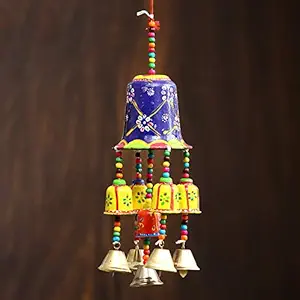नवरात्रि 2025: तिथियाँ, महत्व, पूजा विधि और उत्सव मार्गदर्शिका
परिचय
नवरात्रि भारत का एक महत्वपूर्ण हिन्दू त्योहार है, जिसे नौ दिनों तक माँ दुर्गा की पूजा, उपवास और नृत्य (गरबा और डांडिया) के साथ मनाया जाता है। यह बुराई पर अच्छाई की जीत और आध्यात्मिक जागरूकता का प्रतीक है।
नवरात्रि 2025 तिथियाँ और शुभ मुहूर्त
-
प्रारंभ: रविवार, 15 अक्टूबर 2025 (प्रतिपदा)
-
समापन: सोमवार, 23 अक्टूबर 2025 (नवमी / विजयादशमी अगले दिन)
-
मुख्य पूजा समय: सुबह और शाम; शुभ मुहूर्त स्थान अनुसार अलग-अलग हो सकते हैं।
नवरात्रि का महत्व
-
माँ दुर्गा के नौ रूपों की पूजा: शैलपुत्री, ब्रह्मचारिणी, चंद्रघंटा, कुश्मांडा, स्कंदमाता, कात्यायनी, कालरात्रि, महागौरी, सिद्धिदात्री।
-
महिषासुर पर माँ दुर्गा की विजय का प्रतीक।
-
आत्म-अनुशासन, उपवास, भक्ति और आध्यात्मिक विकास को बढ़ावा देता है।
-
गुजरात और महाराष्ट्र में गरबा और डांडिया के माध्यम से सांस्कृतिक उत्सव।
नवरात्रि की कथा
-
हिंदू पुराणों के अनुसार, यह त्योहार माँ दुर्गा की महिषासुर पर विजय का प्रतीक है।
-
उत्तर भारत में इसे रामलीला और रावण के वध की कथा के साथ जोड़ा गया है।
-
प्रत्येक दिन माँ दुर्गा के विशेष रूप की पूजा की जाती है और अलग-अलग आशीर्वाद प्राप्त होते हैं।
पूजा विधि
-
घर साफ करें और माँ दुर्गा की मूर्ति या चित्र स्थापित करें।
-
दीपक और अगरबत्ती जलाएं।
-
प्रतिदिन फल, पुष्प, मिठाई और कुमकुम अर्पित करें।
-
दुर्गा चालीसा, देवी स्तुति या देवी महात्म्य का पाठ करें।
-
परंपरा अनुसार उपवास रखें।
-
कन्या पूजन (अष्टमी / नवमी) करें।
-
दिन की समाप्ति आरती और प्रसाद वितरण से करें।
भारत में उत्सव
-
गुजरात एवं महाराष्ट्र: रोजाना गरबा और डांडिया।
-
पश्चिम बंगाल एवं पूर्वी भारत: भव्य दुर्गा पूजा और मूर्ति विसर्जन।
-
उत्तर भारत: उपवास, रामलीला, भजन और भक्ति गीत।
-
दक्षिण भारत: गोलू, सांस्कृतिक कार्यक्रम और उपवास।
शुभकामनाएँ
-
“माँ दुर्गा आपको नवरात्रि 2025 में साहस, समृद्धि और खुशियाँ दें।”
-
“अच्छाई की जीत का उत्सव मनाएं और अपने जीवन को भक्ति और आनंद से भर दें।”
Puja Vidhi and Rituals
Ghatasthapana (Kalash Sthapana)
Ghatasthapana marks the beginning of Navratri. It involves placing a Kalash (sacred urn) filled with water and barley seeds symbolizing the goddess's presence. This ritual is performed on the first day of the festival accompanied by prayers and offerings.
Daily Worship of Navadurga
Each day of Navratri is dedicated to one of the nine forms of Goddess Durga known as Navadurga. Devotees worship these forms with specific rituals mantras and offerings seeking blessings for strength and prosperity.
Fasting and Dietary Practices
Fasting during Navratri is a common practice to purify the body and mind. Devotees may consume fruits nuts and specific foods allowed during the fast. The diet varies regionally with some opting for a vegetarian diet free from onions and garlic.
Evening Aarti and Bhajans
In the evenings devotees gather to perform aarti (rituals with light) and sing bhajans (devotional songs) in praise of Goddess Durga. This fosters a sense of community and devotion enhancing the spiritual atmosphere of the festival.
Durga Ashtami and Kanya Pujan
Durga Ashtami the eighth day of Navratri is considered highly auspicious. On this day Kanya Pujan is performed where young girls are worshipped as embodiments of Goddess Durga. They are offered food clothes and gifts as a gesture of respect.
Significance and Benefits
Spiritual Growth
Navratri provides an opportunity for spiritual growth through dedicated worship fasting and reflection. Engaging in these practices helps devotees cultivate inner peace discipline and a deeper connection with the divine.
Health Benefits
Fasting during Navratri is believed to have health benefits such as detoxification and improved digestion. Consuming light and nutritious foods during the festival supports overall well-being.
Community Bonding
Navratri fosters community bonding as people come together for prayers rituals and celebrations. The collective participation strengthens social ties and promotes a sense of unity and harmony.
Cultural Preservation
The festival plays a vital role in preserving and promoting cultural traditions. Through dance music and rituals Navratri helps pass down customs and values to future generations ensuring the continuity of cultural heritage.
Personal Transformation
Observing Navratri encourages personal transformation by promoting self-discipline devotion and introspection. The practices during the festival inspire individuals to overcome negative traits and embrace positive changes in their lives.
Conclusion and Tips
Preparing for Navratri
Begin preparations by cleaning and decorating your home setting up a prayer space and gathering necessary items for the puja. Planning ahead ensures a smooth and meaningful celebration of the festival.
Involving Family in Celebrations
Engage family members including children in the preparations and rituals of Navratri. This fosters a sense of togetherness and helps instill cultural values in younger generations.
Maintaining Fasting Practices
If observing a fast ensure to follow dietary guidelines and stay hydrated. Consult with a healthcare professional if you have any health concerns before fasting.
Participating in Cultural Events
Join local cultural events such as Garba and Dandiya nights to celebrate Navratri. These events offer an opportunity to enjoy traditional dance and music while connecting with the community.
Reflecting on the Festival's Meaning
Take time to reflect on the spiritual and cultural significance of Navratri. Understanding its deeper meanings enhances the overall experience and personal growth during the festival.
Introduction to Navratri
What is Navratri?
Navratri is a significant Hindu festival dedicated to the worship of Goddess Durga celebrated over nine nights and ten days. It symbolizes the victory of good over evil and is observed with fasting prayers and cultural festivities.
When is Navratri 2025?
In 2025 Sharad Navratri begins on Monday September 22 and concludes on Wednesday October 1 with Dussehra on October 2. The festival spans nine nights each dedicated to a different form of Goddess Durga.
Regional Celebrations
Navratri is celebrated across India with regional variations. In Gujarat and Maharashtra Garba and Dandiya are popular while in North India Ramlila performances and Durga Puja are common. Each region has its unique customs and traditions associated with the festival.
Significance of Navratri
Navratri signifies the triumph of good over evil. It commemorates Goddess Durga's victory over the demon Mahishasura. The festival promotes spiritual growth self-discipline and devotion encouraging individuals to overcome negative traits and embrace positivity.
Mythological Stories
According to Hindu mythology Goddess Durga was created by the combined energies of the gods to defeat Mahishasura. Each day of Navratri honors a different form of the goddess representing various aspects of power and virtue.
Ghatasthapana marks the beginning of Navratri. It involves placing a Kalash (sacred urn) filled with water and barley seeds symbolizing the goddess's presence. This ritual is performed on the first day of the festival accompanied by prayers and offerings.
Each day of Navratri is dedicated to one of the nine forms of Goddess Durga known as Navadurga. Devotees worship these forms with specific rituals mantras and offerings seeking blessings for strength and prosperity.
Fasting during Navratri is a common practice to purify the body and mind. Devotees may consume fruits nuts and specific foods allowed during the fast. The diet varies regionally with some opting for a vegetarian diet free from onions and garlic.
In the evenings devotees gather to perform aarti (rituals with light) and sing bhajans (devotional songs) in praise of Goddess Durga. This fosters a sense of community and devotion enhancing the spiritual atmosphere of the festival.
Durga Ashtami the eighth day of Navratri is considered highly auspicious. On this day Kanya Pujan is performed where young girls are worshipped as embodiments of Goddess Durga. They are offered food clothes and gifts as a gesture of respect.
Navratri provides an opportunity for spiritual growth through dedicated worship fasting and reflection. Engaging in these practices helps devotees cultivate inner peace discipline and a deeper connection with the divine.
Fasting during Navratri is believed to have health benefits such as detoxification and improved digestion. Consuming light and nutritious foods during the festival supports overall well-being.
Navratri fosters community bonding as people come together for prayers rituals and celebrations. The collective participation strengthens social ties and promotes a sense of unity and harmony.
The festival plays a vital role in preserving and promoting cultural traditions. Through dance music and rituals Navratri helps pass down customs and values to future generations ensuring the continuity of cultural heritage.
Observing Navratri encourages personal transformation by promoting self-discipline devotion and introspection. The practices during the festival inspire individuals to overcome negative traits and embrace positive changes in their lives.
Begin preparations by cleaning and decorating your home setting up a prayer space and gathering necessary items for the puja. Planning ahead ensures a smooth and meaningful celebration of the festival.
Engage family members including children in the preparations and rituals of Navratri. This fosters a sense of togetherness and helps instill cultural values in younger generations.
If observing a fast ensure to follow dietary guidelines and stay hydrated. Consult with a healthcare professional if you have any health concerns before fasting.
Join local cultural events such as Garba and Dandiya nights to celebrate Navratri. These events offer an opportunity to enjoy traditional dance and music while connecting with the community.
Take time to reflect on the spiritual and cultural significance of Navratri. Understanding its deeper meanings enhances the overall experience and personal growth during the festival.
Navratri is a significant Hindu festival dedicated to the worship of Goddess Durga celebrated over nine nights and ten days. It symbolizes the victory of good over evil and is observed with fasting prayers and cultural festivities.
In 2025 Sharad Navratri begins on Monday September 22 and concludes on Wednesday October 1 with Dussehra on October 2. The festival spans nine nights each dedicated to a different form of Goddess Durga.
Navratri is celebrated across India with regional variations. In Gujarat and Maharashtra Garba and Dandiya are popular while in North India Ramlila performances and Durga Puja are common. Each region has its unique customs and traditions associated with the festival.
Navratri signifies the triumph of good over evil. It commemorates Goddess Durga's victory over the demon Mahishasura. The festival promotes spiritual growth self-discipline and devotion encouraging individuals to overcome negative traits and embrace positivity.
According to Hindu mythology Goddess Durga was created by the combined energies of the gods to defeat Mahishasura. Each day of Navratri honors a different form of the goddess representing various aspects of power and virtue.


